Links to external sources may no longer work as intended. The content may not represent the latest thinking in this area or the Society’s current position on the topic.
Confronting radical uncertainty

Science+ meeting organised by Professor David Tuckett, Dr David Good and Professor Leonard Smith.
In this meeting, the plan is to focus on 'real life' decision-making in government, business and the Third Sector – decisions such as those about climate mitigation and preserving our environment; policy priorities in health and education; innovation, increasing productivity and new product design; organisational and regulatory innovation; when and how to intervene in humanitarian or other crises; how to maintain cyber and other forms of security; what macroeconomic policies to use to maximise the wellbeing of citizens; how to minimize social and mental discontent; etc.
We conceive decisions of this type and many of the other vital ones confronting us as made in a framework of Radical Uncertainty. It means that, at the time decision-makers decide what to do, they may reasonably be able to imagine some of the different outcomes of their actions but can neither know nor specify the full range of possibilities nor calculate the likelihood that the one they desire will eventuate. Moreover, as many such decisions have to be made and cannot be delayed (because not making them is a decision), decision-makers face an additional challenge – how to build commitment to an uncertain course (or be paralysed) and how to monitor and adjust as plans unfold through time.
Within this Radical Uncertainty framework, in discussion between decision-makers and scientists from across a wide academic spectrum, we want to test whether by re-evaluating prevailing analytic approaches to decision-making, mostly based on probabilistic reasoning, we can offer better decision support. A guiding idea is that uncertainty is an opportunity to be embraced as well as to be feared and avoided. Decision-making under uncertainty will generate emotions attached to approach or avoidance. One proposition is that it is time to talk both about the facilitating role of emotion in human decision-making and to recognise the costs of ignoring feelings.
In the panel sessions during the conference, we will use the Radical Uncertainty framework proposed to:
- Discuss the experience of a group of very senior decision-makers (Panel 1).
- Debate some of the core academic approaches to decision-making coming from cognitive science, mathematics, statistics and operational research (Panel 2).
- Hear about some new contemporary research into social and affective neuroscience and 'conviction narrative theory' (Panel 3)
- Discuss several pilot projects aimed at helping decision-makers in Whitehall and elsewhere to confront radical uncertainty (Panel 4).
- Think about the core questions that further research needs to address and how research funding and institutions might need to adapt to make it possible (Concluding dialogue).
The schedule of sessions and speaker biographies are available below.
Attending this event
This meeting has taken place.
Enquiries: contact the Scientific Programmes team
Organisers
Schedule
Chair
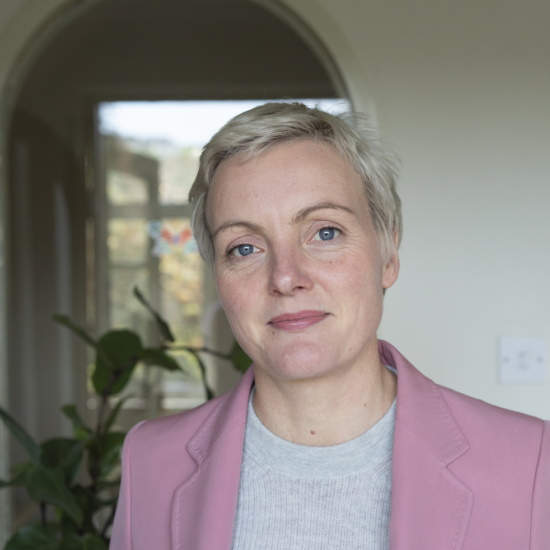
Gemma Mortensen, New Constellations, UK

Gemma Mortensen, New Constellations, UK
Gemma is an award-winning social entrepreneur and thinker and practitioner in transformative, systemic change. She is founder and co-creator of New Constellations, which exists to help individuals and communities imagine and begin to create futures of human and planetary flourishing. She is co-founder and vice-chair of More In Common, and sits on the advisory council of Yale University’s International Leadership Centre. She was previously Chief Global Officer at Change.org, the world’s largest platform for social change, CEO of Crisis Action – an organisation that won the MacArthur Award and Skoll Award for its innovative systems model, and co-chaired the World Economic Forum’s Global Council on systems leadership.
| 08:00 - 08:30 | Introduction |
|---|---|
| 08:30 - 09:30 |
Panel discussion 1: Real world decision making in government, business and the economy
To what extent is radical uncertainty a regular feature of the decision-making context in government and business? What is the essence of the sorts of decision-making challenges that have to be faced? How is ambivalence and contest recognised and handled? How is information processed? What is the role for quantification, formal modelling, AI and experimentation? What are the resistances? How are opportunities missed? What goes wrong? How can mistakes or paralysis be prevented? How far is useful feedback available? When is groupthink operative and how might it be avoided? What might be helpful? The speakers will provide their own views and examples and more. 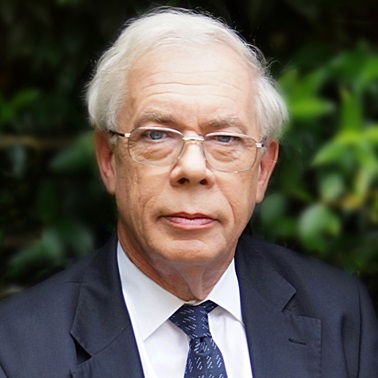
Sir John Kay CBE FBA, St John’s College, University of Oxford, UK

Sir John Kay CBE FBA, St John’s College, University of Oxford, UKSir John Kay is an economist whose career has spanned the academic world, business and finance, and public affairs. He has held chairs at the London Business School, the University of Oxford and the London School of Economics and is a Fellow of St John’s College, Oxford, where he began his academic career in 1970. He is a Fellow of the British Academy and of the Royal Society of Edinburgh. He is the author of many books, including The Truth about Markets (2003), The Long and the Short of It (2009, new revised edition 2016), Obliquity (2010) and Other People’s Money (2015). Radical Uncertainty, jointly written with Mervyn King, was published in March 2020. His latest book, Greed is Dead, co-authored with Paul Collier, was published in July 2020. 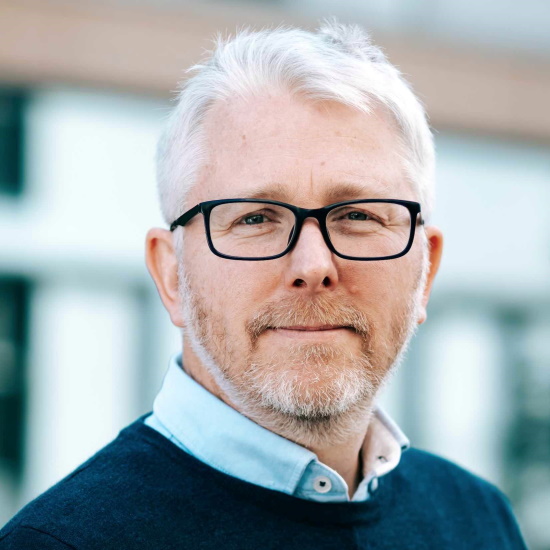
Dr Trevor Maynard, Judge Business School, UK

Dr Trevor Maynard, Judge Business School, UKDr Trevor Maynard is the Director of Systemic Risk at the Cambridge Centre for Risk Studies located at the Judge Business School. He qualified as an actuary and holds a PhD in Statistics from the LSE and a Masters in Pure Mathematics from the University of Warwick. His work has involved risk modelling in various guises from Pensions and Life Assurance to general insurance, working for firms such as Lloyd's of London and Mercer. Whilst at Lloyd's his team produced risk reports on subjects including Pandemics, Climate Change, Deep tail Marine disasters, Nano Technology, Geopolitics, AI, Robotics and IoT working with many think tanks, universities and specialist risk modelling firms. Additionally he advises insurtech firms on risk and data science. 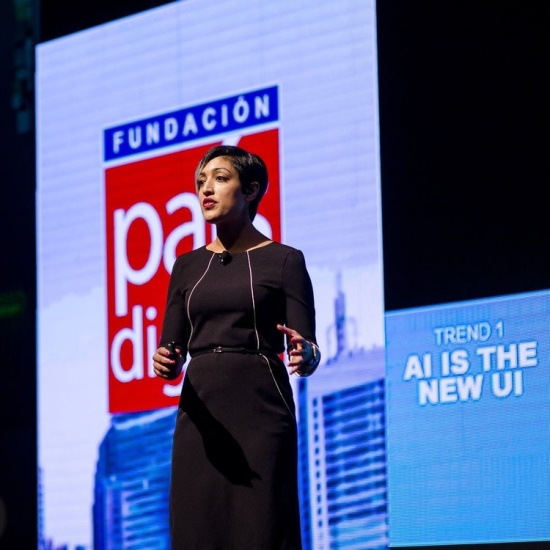
Dr Rumman Chowdhury, Twitter, USA

Dr Rumman Chowdhury, Twitter, USADr Rumman Chowdhury’s passion lies at the intersection of artificial intelligence and humanity. She is a pioneer in the field of applied algorithmic ethics, creating cutting-edge socio-technical solutions for ethical, explainable and transparent AI. She is currently the Director of META (ML Ethics, Transparency, and Accountability) team at Twitter, leading a team of applied researchers and engineers to identify and mitigate algorithmic harms on the platform. Previously, she was CEO and founder of Parity and served as Global Lead for Responsible AI at Accenture Applied Intelligence. She is a General Partner (and founder) of the Parity Responsible Innovation venture capital fund. She also serves as a mentor for the Creative Destruction Lab and as a board member of Startups and Society. Dr Chowdhury serves as a board member of the UK Center for Data Ethics and Innovation, and on UNESCO’s Broadband Commission for Sustainable Development. She serves on the board of Oxford University’s Commission on AI and Governance, AI4All, the SSRC’s Just Tech Advisory Group, the University of Virginia’s Data Science Program, and Patterns, a data science journal. She was named one of BBC’s 100 Women, recognized as one of the Bay Area’s top 40 under 40, and inducted to the British Royal Society of the Arts (RSA). She has also been named by Forbes as one of Five Who are Shaping AI. Dr Chowdhury holds two undergraduate degrees from MIT, a master's degree in Quantitative Methods of the Social Sciences from Columbia University, and a doctorate in political science from the University of California, San Diego. 
Lord Gus O'Donnell GCB FBA, UK

Lord Gus O'Donnell GCB FBA, UKLord Gus O'Donnell is Chairman of Frontier Economics, Strategic Advisor to TD Bank, Executive Director and Strategic Advisor to Brookfield Asset Management, Chair of PwC’s Public Interest Body (PIB), President of the Council of the Institute for Fiscal Studies (IFS), Chair of the Board of Trustees for Pro Bono Economics, Visiting Professor at LSE and UCL, a member of the Economist Trust, and Chair of the Behavioural Insights Team Advisory Board at the Cabinet Office. Gus was Cabinet Secretary and Head of the British Civil Service from 2005–2011. In 2010, he oversaw the introduction of the first coalition government since the Second World War. Previously, he was Permanent Secretary of the Treasury from 2002–2005 and served on the IMF and World Bank Boards. Gus studied Economics at Warwick University and Nuffield College, Oxford, then lectured at Glasgow University. Knighted in 2005, Gus was appointed to the House of Lords in 2012, sitting as a crossbencher (ie not affiliated to any political party). Gus is an Honorary Fellow of the British Academy and Fellow of the Academy of Social Sciences. |
| 09:30 - 10:00 | Coffee |
| 10:00 - 11:30 |
Panel discussion continued

Sir John Kay CBE FBA, St John’s College, University of Oxford, UK

Sir John Kay CBE FBA, St John’s College, University of Oxford, UKSir John Kay is an economist whose career has spanned the academic world, business and finance, and public affairs. He has held chairs at the London Business School, the University of Oxford and the London School of Economics and is a Fellow of St John’s College, Oxford, where he began his academic career in 1970. He is a Fellow of the British Academy and of the Royal Society of Edinburgh. He is the author of many books, including The Truth about Markets (2003), The Long and the Short of It (2009, new revised edition 2016), Obliquity (2010) and Other People’s Money (2015). Radical Uncertainty, jointly written with Mervyn King, was published in March 2020. His latest book, Greed is Dead, co-authored with Paul Collier, was published in July 2020. 
Dr Trevor Maynard, Judge Business School, UK

Dr Trevor Maynard, Judge Business School, UKDr Trevor Maynard is the Director of Systemic Risk at the Cambridge Centre for Risk Studies located at the Judge Business School. He qualified as an actuary and holds a PhD in Statistics from the LSE and a Masters in Pure Mathematics from the University of Warwick. His work has involved risk modelling in various guises from Pensions and Life Assurance to general insurance, working for firms such as Lloyd's of London and Mercer. Whilst at Lloyd's his team produced risk reports on subjects including Pandemics, Climate Change, Deep tail Marine disasters, Nano Technology, Geopolitics, AI, Robotics and IoT working with many think tanks, universities and specialist risk modelling firms. Additionally he advises insurtech firms on risk and data science. 
Dr Rumman Chowdhury, Twitter, USA

Dr Rumman Chowdhury, Twitter, USADr Rumman Chowdhury’s passion lies at the intersection of artificial intelligence and humanity. She is a pioneer in the field of applied algorithmic ethics, creating cutting-edge socio-technical solutions for ethical, explainable and transparent AI. She is currently the Director of META (ML Ethics, Transparency, and Accountability) team at Twitter, leading a team of applied researchers and engineers to identify and mitigate algorithmic harms on the platform. Previously, she was CEO and founder of Parity and served as Global Lead for Responsible AI at Accenture Applied Intelligence. She is a General Partner (and founder) of the Parity Responsible Innovation venture capital fund. She also serves as a mentor for the Creative Destruction Lab and as a board member of Startups and Society. Dr Chowdhury serves as a board member of the UK Center for Data Ethics and Innovation, and on UNESCO’s Broadband Commission for Sustainable Development. She serves on the board of Oxford University’s Commission on AI and Governance, AI4All, the SSRC’s Just Tech Advisory Group, the University of Virginia’s Data Science Program, and Patterns, a data science journal. She was named one of BBC’s 100 Women, recognized as one of the Bay Area’s top 40 under 40, and inducted to the British Royal Society of the Arts (RSA). She has also been named by Forbes as one of Five Who are Shaping AI. Dr Chowdhury holds two undergraduate degrees from MIT, a master's degree in Quantitative Methods of the Social Sciences from Columbia University, and a doctorate in political science from the University of California, San Diego. 
Lord Gus O'Donnell GCB FBA, UK

Lord Gus O'Donnell GCB FBA, UKLord Gus O'Donnell is Chairman of Frontier Economics, Strategic Advisor to TD Bank, Executive Director and Strategic Advisor to Brookfield Asset Management, Chair of PwC’s Public Interest Body (PIB), President of the Council of the Institute for Fiscal Studies (IFS), Chair of the Board of Trustees for Pro Bono Economics, Visiting Professor at LSE and UCL, a member of the Economist Trust, and Chair of the Behavioural Insights Team Advisory Board at the Cabinet Office. Gus was Cabinet Secretary and Head of the British Civil Service from 2005–2011. In 2010, he oversaw the introduction of the first coalition government since the Second World War. Previously, he was Permanent Secretary of the Treasury from 2002–2005 and served on the IMF and World Bank Boards. Gus studied Economics at Warwick University and Nuffield College, Oxford, then lectured at Glasgow University. Knighted in 2005, Gus was appointed to the House of Lords in 2012, sitting as a crossbencher (ie not affiliated to any political party). Gus is an Honorary Fellow of the British Academy and Fellow of the Academy of Social Sciences. |
Chair
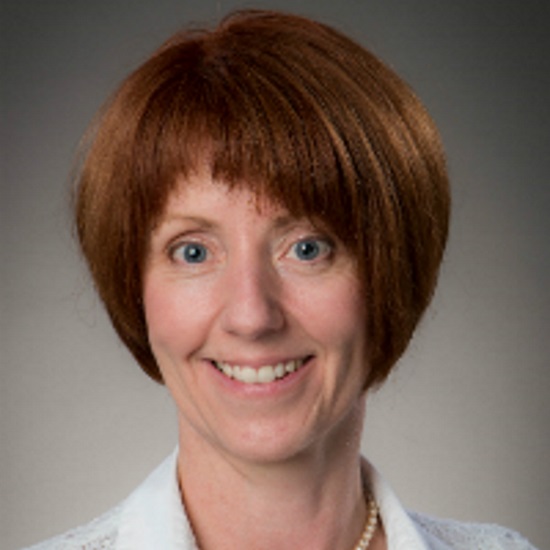
Professor Carole Mundell, University of Bath

Professor Carole Mundell, University of Bath
Carole Mundell is Professor of Extragalactic Astronomy and Head of the Department of Physics at the University of Bath. An observational astrophysicist, she exploits international ground- and space-based facilities across the electromagnetic spectrum to study cosmic black holes and their environments. Her team specializes in developing and using novel technology on autonomous robotic telescopes to catch the fast-fading light from powerful but unpredictable cosmic explosions such as Gamma Ray Bursts. Using this technology, Carole's team discovered the first direct evidence of large-scale ordered magnetic fields in plasma ejected at speeds close to that of light by a newly formed, distant black hole system.
Carole has held prestigious fellowships including a Royal Society Wolfson Research Merit Award for the study of black-hole driven explosions and the dynamic Universe and in 2016, she was named FDM Everywoman in Technology Woman of the Year. With the wealth of new astronomical facilities planned to come online in the coming decade, she is particularly interested in the engineering, mathematical and computing challenges of real-time, autonomous and interpretive systems in the era of 'big data'.
Image: © IDPS, University of Bath
| 12:30 - 14:00 |
Panel discussion 2: When quantification and analysis can help and how to use it
Thinking about the 'radical uncertainty' characteristics of decisions faced by government, business and the third sector mentioned so far, to what extent can questions about what to do be answered and options calculated with recourse to current scientific analysis and model-making? What support tools are available and how should they be used? How far is existing knowledge of how humans make these kinds of decisions relevant? How should modelling approaches be adjusted in the light of available action sets? Do we have knowledge about how things go wrong and how we might be able to avoid that? Can quantitative research skills be mixed with research understanding? How they are used in practice? How can we make current research into decision-making relevant for practice? 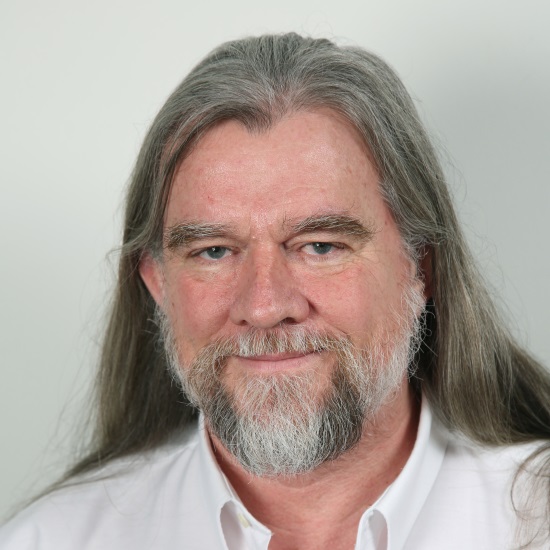
Professor Leonard Smith, University of Oxford, UK

Professor Leonard Smith, University of Oxford, UKLeonard Smith holds a PhD in Physics from Columbia University and is Director of the Centre for the Analysis of Time Series and Professor of Statistics at the London School of Economics and Political Science. He has been a Senior Research Fellow at Pembroke College Oxford since 1992, and became a Senior Research Fellow in the Energy Policy Institute at the University of Chicago in 2016. His book Chaos: A Very Short Introduction is an Amazon #1 Best Seller, available in eight languages. His research interests include the real world as well as our (imperfect) models of it, leading to questions of predictability and probability in practice; he also studies the roles of science to better inform policy making. He received the Royal Meteorological Society’s Fitzroy Prize and an Australian Academy of Sciences Selby Fellowship. 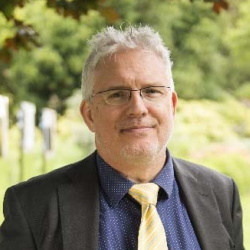
Professor Stephan Lewandowsky, University of Bristol, UK

Professor Stephan Lewandowsky, University of Bristol, UKProfessor Lewandowsky is a cognitive scientist with an interest in how people update their memories if information they believe turns out to be false. This has led him to examine the persistence of misinformation and spread of 'fake news' in society, including conspiracy theories. He has become particularly interested in the variables that determine whether or not people accept scientific evidence, for example surrounding vaccinations or climate science. Because his research speaks to important contemporary events, he contributes to public debate through opinion pieces in the media and public engagement. 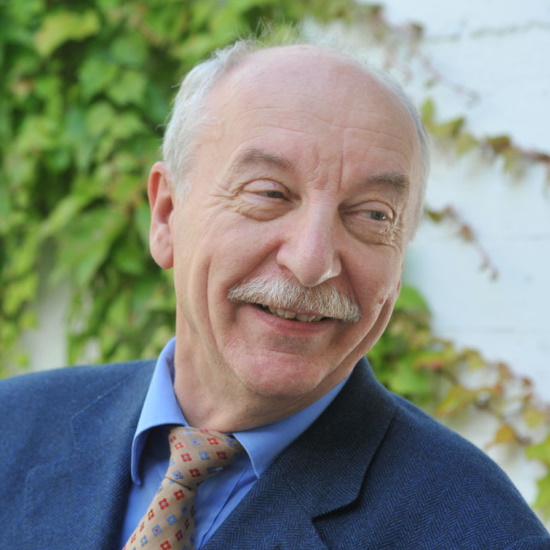
Professor Gerd Gigerenzer, Max Planck Institute for Human Development, Germany

Professor Gerd Gigerenzer, Max Planck Institute for Human Development, GermanyGerd Gigerenzer is Director of the Harding Center for Risk Literacy at the University of Potsdam and Director emeritus at the Max Planck Institute for Human Development in Berlin. He is former Professor of Psychology at the University of Chicago and John M. Olin Distinguished Visiting Professor, School of Law at the University of Virginia. He is Member of the Berlin-Brandenburg Academy of Sciences, the German Academy of Sciences and Honorary Member of the American Academy of Arts and Sciences and the American Philosophical Society. He was awarded honorary doctorates from the University of Basel and the Open University of the Netherlands, and is Batten Fellow at the Darden Business School, University of Virginia. Awards for his work include the AAAS Prize for the best article in the behavioral sciences, the Association of American Publishers Prize for the best book in the social and behavioural sciences, the German Psychology Award, and the Communicator Award of the German Research Foundation. His award-winning popular books Calculated Risks, Gut Feelings, and Risk Savvy have been translated into 21 languages. Gigerenzer has trained federal judges, physicians, and top managers in decision-making. The Swiss Duttweiler Institute has distinguished Gigerenzer as one of the top-100 Global Thought Leaders worldwide. 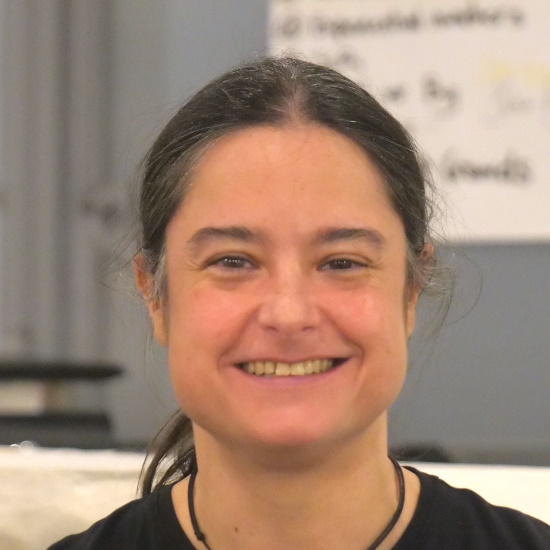
Professor Julia Gog OBE, University of Cambridge, UK

Professor Julia Gog OBE, University of Cambridge, UKJulia Gog is the Professor of Mathematical Biology, at DAMTP, Faculty of Mathematics at the University of Cambridge, and the David N. Moore Fellow in mathematics at Queens’ College Cambridge. Julia’s research is in the spread and evolution of infectious disease, particularly influenza. Julia is co-lead of the JUNIPER consortium which brings together epidemiological research across several UK universities (maths.org/juniper). Julia has been a member of SPI-M since 2018, and participant of SAGE during the COVID-19 emergency. In 2020 Julia was awarded the Royal Society’s Rosalind Franklin Award, honorary membership of the Mathematical Association and an OBE for services to academia and the COVID-19 response. |
|---|---|
| 14:00 - 14:30 | Tea |
| 14:30 - 16:00 |
Panel discussion continued

Professor Leonard Smith, University of Oxford, UK

Professor Leonard Smith, University of Oxford, UKLeonard Smith holds a PhD in Physics from Columbia University and is Director of the Centre for the Analysis of Time Series and Professor of Statistics at the London School of Economics and Political Science. He has been a Senior Research Fellow at Pembroke College Oxford since 1992, and became a Senior Research Fellow in the Energy Policy Institute at the University of Chicago in 2016. His book Chaos: A Very Short Introduction is an Amazon #1 Best Seller, available in eight languages. His research interests include the real world as well as our (imperfect) models of it, leading to questions of predictability and probability in practice; he also studies the roles of science to better inform policy making. He received the Royal Meteorological Society’s Fitzroy Prize and an Australian Academy of Sciences Selby Fellowship. 
Professor Stephan Lewandowsky, University of Bristol, UK

Professor Stephan Lewandowsky, University of Bristol, UKProfessor Lewandowsky is a cognitive scientist with an interest in how people update their memories if information they believe turns out to be false. This has led him to examine the persistence of misinformation and spread of 'fake news' in society, including conspiracy theories. He has become particularly interested in the variables that determine whether or not people accept scientific evidence, for example surrounding vaccinations or climate science. Because his research speaks to important contemporary events, he contributes to public debate through opinion pieces in the media and public engagement. 
Professor Gerd Gigerenzer, Max Planck Institute for Human Development, Germany

Professor Gerd Gigerenzer, Max Planck Institute for Human Development, GermanyGerd Gigerenzer is Director of the Harding Center for Risk Literacy at the University of Potsdam and Director emeritus at the Max Planck Institute for Human Development in Berlin. He is former Professor of Psychology at the University of Chicago and John M. Olin Distinguished Visiting Professor, School of Law at the University of Virginia. He is Member of the Berlin-Brandenburg Academy of Sciences, the German Academy of Sciences and Honorary Member of the American Academy of Arts and Sciences and the American Philosophical Society. He was awarded honorary doctorates from the University of Basel and the Open University of the Netherlands, and is Batten Fellow at the Darden Business School, University of Virginia. Awards for his work include the AAAS Prize for the best article in the behavioral sciences, the Association of American Publishers Prize for the best book in the social and behavioural sciences, the German Psychology Award, and the Communicator Award of the German Research Foundation. His award-winning popular books Calculated Risks, Gut Feelings, and Risk Savvy have been translated into 21 languages. Gigerenzer has trained federal judges, physicians, and top managers in decision-making. The Swiss Duttweiler Institute has distinguished Gigerenzer as one of the top-100 Global Thought Leaders worldwide. 
Professor Julia Gog OBE, University of Cambridge, UK

Professor Julia Gog OBE, University of Cambridge, UKJulia Gog is the Professor of Mathematical Biology, at DAMTP, Faculty of Mathematics at the University of Cambridge, and the David N. Moore Fellow in mathematics at Queens’ College Cambridge. Julia’s research is in the spread and evolution of infectious disease, particularly influenza. Julia is co-lead of the JUNIPER consortium which brings together epidemiological research across several UK universities (maths.org/juniper). Julia has been a member of SPI-M since 2018, and participant of SAGE during the COVID-19 emergency. In 2020 Julia was awarded the Royal Society’s Rosalind Franklin Award, honorary membership of the Mathematical Association and an OBE for services to academia and the COVID-19 response. |
Chair
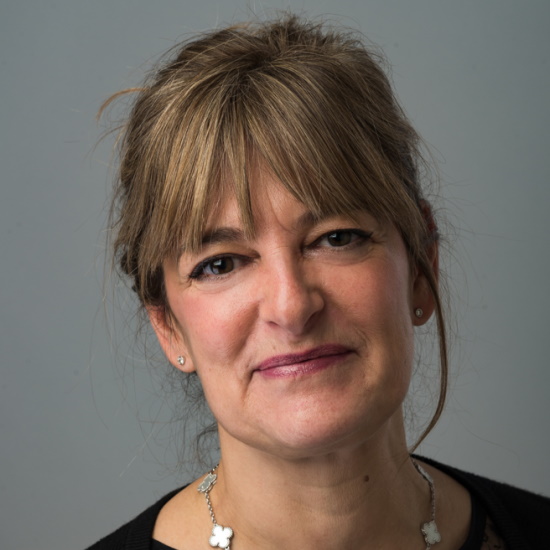
Dr Catherine Fieschi, Counterpoint, UK

Dr Catherine Fieschi, Counterpoint, UK
Catherine Fieschi is a leading European politics expert and global analyst. Her main focus is on populism and other contemporary forms of mobilisation and protest across developed economies. She is the Director of Counterpoint, a London-based research and advisory group that provides governments, NGOs and enlightened corporates with strategic insights on how to manage dissent and support new forms of legitimate consent. She is also a Senior Adviser to the macro-advisory firm MAP and to the Pew Research Center, as well as Senior Member of the Singapore Government’s Centre for Strategic Foresight. Prior to founding Counterpoint, Catherine was Director of the London think tank Demos.
Catherine is a longstanding adviser to European political leaders and campaigns; she is the author of Populocracy (Agenda, 2019) and of In the Shadow of Democracy (MUP, 2004); as well as numerous pamphlets and articles on extremism, populism, and identity politics. Widely published in academia and beyond, Catherine has a regular column in the Chatham House magazine, The World Today, is a former editorial board member of Prospect magazine, and is a regular political and social commentator. A native speaker of French, Italian and English, she holds a PhD in Comparative Politics from McGill University and lives in Paris.
| 08:00 - 09:30 |
Panel discussion 3: The role of social and affective neuroscience, and emotions and narratives in human decision-making
Thinking about the challenges of making radically uncertain decisions, usually in groups, what can neuroscience tell us about how we can meet them? What do we see? What do we recall? How do we anticipate and plan? How do we manage failure? How do human brains allow us to imagine the future? What is the role of emotion in the brain? Are we cooperative? How do we process information? How do we judge whom and what we trust? Is there a sense in which we can say there are narratives in the brain? What might be the role of narratives in acting to implement plans? 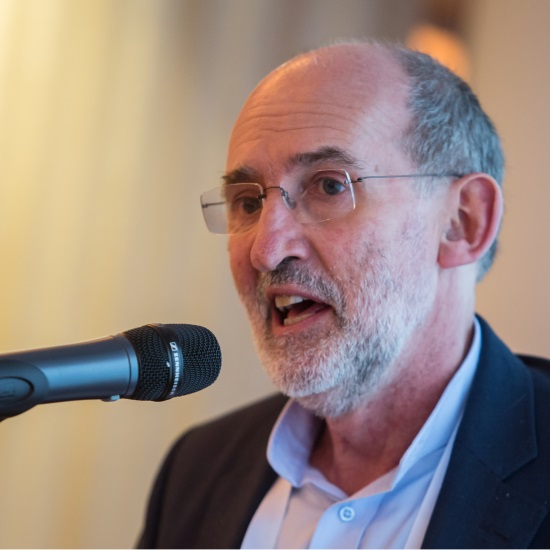
Professor David Tuckett, University College London, UK

Professor David Tuckett, University College London, UKDavid Tuckett is a Professor and Director of the University College London (UCL) Centre for the Study of Decision-Making under Uncertainty based in the Faculty of Brain Sciences and a Fellow of the Institute of Psychoanalysis, London. Trained in Economics, Medical Sociology and Psychoanalysis he is the author of articles and several books including Minding the Markets: An Emotional Finance View of Financial Instability, based on a set of interviews with leading asset managers. Since 2010, supported by the Institute of New Economic Thinking, he has been collaborating with colleagues at UCL in economics, finance, public policy, psychology, social anthropology, computer science and neuroscience and with the Monetary Policy, Financial Stability and Research Divisions at the Bank of England to develop new ways of thinking about decision-making under radical uncertainty as well as new ways of gathering forward looking policy relevant economic information. He is on the Management group of the ESRC-NIESR Rebuilding Macroeconomics network and between 2017 and 2019 led the EPSRC funded Decision-Making Under Uncertainty Network – Challenging Radical Uncertainty in Science, Society and the Environment (CRUISSE). 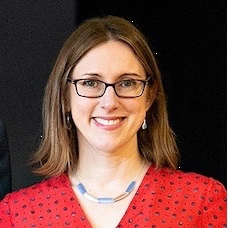
Professor Sarah-Jayne Blakemore FMedSci FBA, University of Cambridge, UK

Professor Sarah-Jayne Blakemore FMedSci FBA, University of Cambridge, UKSarah-Jayne Blakemore is a Professor of Psychology at the University of Cambridge, and is Leader of the Developmental Cognitive Neuroscience Group. Her group's research focuses on the development of social cognition and decision making in the human adolescent brain, and adolescent mental health. Professor Blakemore studied Experimental Psychology at Oxford University and then did her PhD at UCL and a postdoc in Lyon, France. Between 2003 and 2016 she held a series of Royal Society Research Fellowships at UCL. She has published over 140 papers in scientific journals and won several awards for her research, including the British Psychological Society Spearman Medal 2011, the Royal Society Rosalind Franklin Award 2013, the Klaus J Jacobs Prize 2015 and the British Psychological Society Presidents’ Award 2018. She is a Fellow of the British Academy and the Academy of Medical Sciences. Professor Blakemore is actively involved in public engagement with science activities and has an interest in the links between neuroscience and education. She was a member of the Royal Society BrainWaves working group for neuroscience, education and lifelong learning and the Royal Society Vision Committee for Science and Mathematics Education. Professor Blakemore is Chair of the Royal Society of Biology Education and Science Policy Committee. She is an editor at Proceedings of the National Academy of Sciences and on the advisory board of the Lancet Child & Adolescent Health. Her book Inventing Ourselves: the secret life of the adolescent brain was published in 2018 and won the Royal Society Science Book Prize 2018. 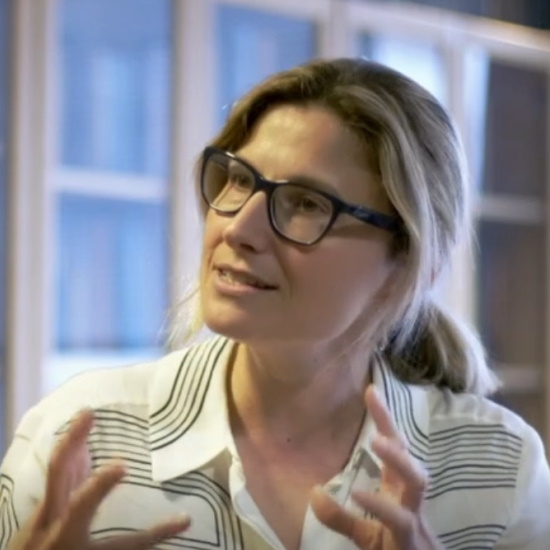
Professor Aikaterini (Katerina) Fotopoulou, University College London, UK

Professor Aikaterini (Katerina) Fotopoulou, University College London, UKKaterina Fotopoulou, PhD, DCPsych, is a Professor in Psychodynamic Neuroscience at University College London, a psychotherapist and chartered counselling psychologist. Her research specialises at boundary areas between mental and physical health, funded by two major programme grants, ‘BODILY SELF’ and more recently ‘METABODY’, by the European Research Council. Katerina is the co-founder of the International Association for the Study of Affective Touch (IASAT), a Fellow of the Association for Psychological Sciences and a leading figure in several other interdisciplinary societies in cognitive neuroscience and psychology. Katerina has published more than 150 research articles and has received several awards for her research, including the Distinguished Young Scientist Award (2014) by the World Economic Forum and the prestigious Early Career Award of the International Neuropsychology Society (2016).
|
|---|---|
| 09:30 - 10:00 | Coffee |
| 10:00 - 11:00 |
Panel discussion continued

Professor David Tuckett, University College London, UK

Professor David Tuckett, University College London, UKDavid Tuckett is a Professor and Director of the University College London (UCL) Centre for the Study of Decision-Making under Uncertainty based in the Faculty of Brain Sciences and a Fellow of the Institute of Psychoanalysis, London. Trained in Economics, Medical Sociology and Psychoanalysis he is the author of articles and several books including Minding the Markets: An Emotional Finance View of Financial Instability, based on a set of interviews with leading asset managers. Since 2010, supported by the Institute of New Economic Thinking, he has been collaborating with colleagues at UCL in economics, finance, public policy, psychology, social anthropology, computer science and neuroscience and with the Monetary Policy, Financial Stability and Research Divisions at the Bank of England to develop new ways of thinking about decision-making under radical uncertainty as well as new ways of gathering forward looking policy relevant economic information. He is on the Management group of the ESRC-NIESR Rebuilding Macroeconomics network and between 2017 and 2019 led the EPSRC funded Decision-Making Under Uncertainty Network – Challenging Radical Uncertainty in Science, Society and the Environment (CRUISSE). 
Professor Sarah-Jayne Blakemore FMedSci FBA, University of Cambridge, UK

Professor Sarah-Jayne Blakemore FMedSci FBA, University of Cambridge, UKSarah-Jayne Blakemore is a Professor of Psychology at the University of Cambridge, and is Leader of the Developmental Cognitive Neuroscience Group. Her group's research focuses on the development of social cognition and decision making in the human adolescent brain, and adolescent mental health. Professor Blakemore studied Experimental Psychology at Oxford University and then did her PhD at UCL and a postdoc in Lyon, France. Between 2003 and 2016 she held a series of Royal Society Research Fellowships at UCL. She has published over 140 papers in scientific journals and won several awards for her research, including the British Psychological Society Spearman Medal 2011, the Royal Society Rosalind Franklin Award 2013, the Klaus J Jacobs Prize 2015 and the British Psychological Society Presidents’ Award 2018. She is a Fellow of the British Academy and the Academy of Medical Sciences. Professor Blakemore is actively involved in public engagement with science activities and has an interest in the links between neuroscience and education. She was a member of the Royal Society BrainWaves working group for neuroscience, education and lifelong learning and the Royal Society Vision Committee for Science and Mathematics Education. Professor Blakemore is Chair of the Royal Society of Biology Education and Science Policy Committee. She is an editor at Proceedings of the National Academy of Sciences and on the advisory board of the Lancet Child & Adolescent Health. Her book Inventing Ourselves: the secret life of the adolescent brain was published in 2018 and won the Royal Society Science Book Prize 2018. 
Professor Aikaterini (Katerina) Fotopoulou, University College London, UK

Professor Aikaterini (Katerina) Fotopoulou, University College London, UKKaterina Fotopoulou, PhD, DCPsych, is a Professor in Psychodynamic Neuroscience at University College London, a psychotherapist and chartered counselling psychologist. Her research specialises at boundary areas between mental and physical health, funded by two major programme grants, ‘BODILY SELF’ and more recently ‘METABODY’, by the European Research Council. Katerina is the co-founder of the International Association for the Study of Affective Touch (IASAT), a Fellow of the Association for Psychological Sciences and a leading figure in several other interdisciplinary societies in cognitive neuroscience and psychology. Katerina has published more than 150 research articles and has received several awards for her research, including the Distinguished Young Scientist Award (2014) by the World Economic Forum and the prestigious Early Career Award of the International Neuropsychology Society (2016).
|
Chair
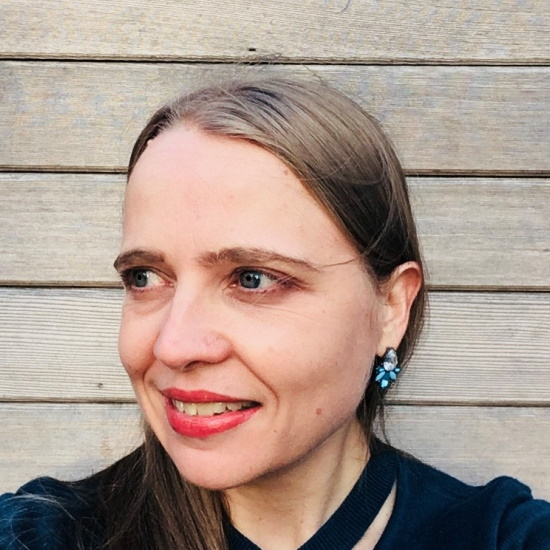
Dr Carla Groom, Department for Work & Pensions, UK

Dr Carla Groom, Department for Work & Pensions, UK
Dr Carla Groom is Deputy Director and Head of Behavioural Science at the Department for Work & Pensions. After studying psychology at Cambridge University, she completed a PhD in social psychology at Northwestern University and held a post-doctoral position at the University of Texas at Austin. During this time she published more than a dozen papers, one of which received the Society of Personality and Social Psychology Wegner award for Theoretical Innovation.
Using her experience in Government, industry and academia, particularly her experience of working on automatic enrolment into workplace pensions, she has pioneered a form of behavioural practice that operates early in the design of policies and processes. Instead of applying and testing academic psychological research, the focus is on understanding better the context and complexity of human behaviours in the real world. She heads up a team that has been supporting all parts of DWP – policy, operations, HR and more – since 2015.
| 12:00 - 13:30 |
Panel discussion 4: Confronting radical uncertainty in practice: pilot projects
How do decision makers confront the uncertainties they face when they are asked to try to prevent humanitarian or other crises, imagine and prepare for future risks, decide whether it not to deploy resources before an emergency has happened, create processes for building and planning that make infrastructure resilient to future events, etc? What new ideas flowing from a radical uncertainty perspective are useful and worth exploring? Can we discern any general principles? Speakers will describe pilot projects designed in collaboration with the Cabinet Office and Humanitarian charities. 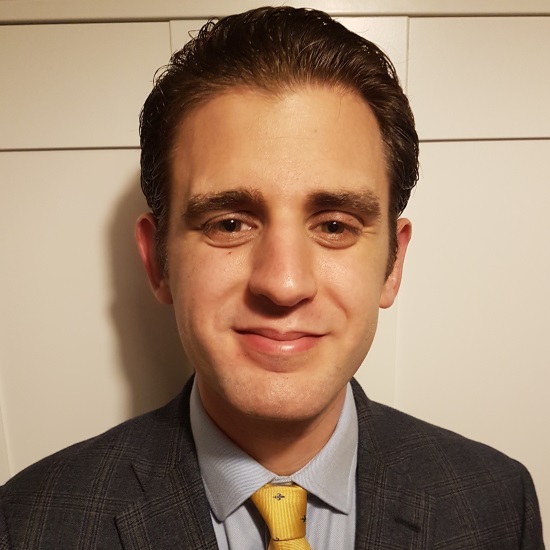
Dr Ben Bowles, SOAS University of London, UK

Dr Ben Bowles, SOAS University of London, UKBen is a Lecturer in Social Anthropology at SOAS in the Department of Anthropology and Sociology. He has conducted research on water governance and water conflicts, boat-dwelling communities in the UK, the assurance of infrastructure projects for resilience, infrastructure financing communities, policing during the Covid-19 pandemic, and police professionalisation. He is an anthropologist of Britain, with an overriding research interest in processes of governance and statecraft. He is also a Research Fellow at the Open University. 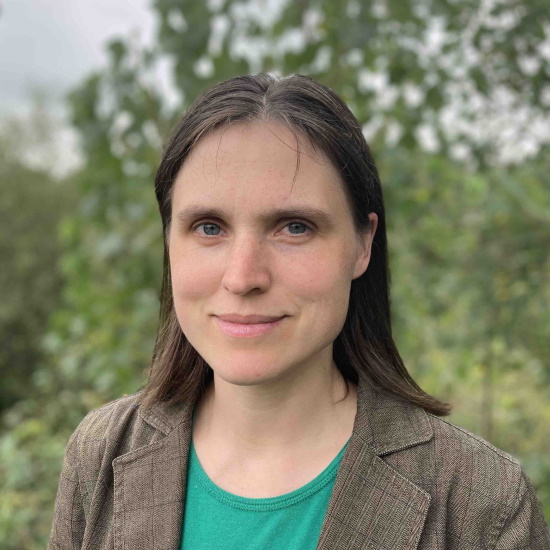
Dr Erica Thompson, London School of Economics and Political Science, UK

Dr Erica Thompson, London School of Economics and Political Science, UKDr Erica Thompson is a Senior Policy Fellow in Ethics of Modelling and Simulation at the LSE’s Data Science Institute, funded by a UKRI Future Leaders Fellowship. She is also a Fellow of the London Mathematical Laboratory, where she leads the research programme on Inference from Models, and an Honorary Senior Research Fellow at UCL’s Department of Science, Technology, Engineering and Public Policy. Erica works on the appropriate use of mathematical modelling to support real-world decisions, from mathematical and statistical questions about methodologies of inference from models, to psycho-social questions about the formation of confidence and the role of expert judgement. She applies these insights in fields including climate change science, anticipatory humanitarian action, artificial intelligence, insurance and risk regulation. 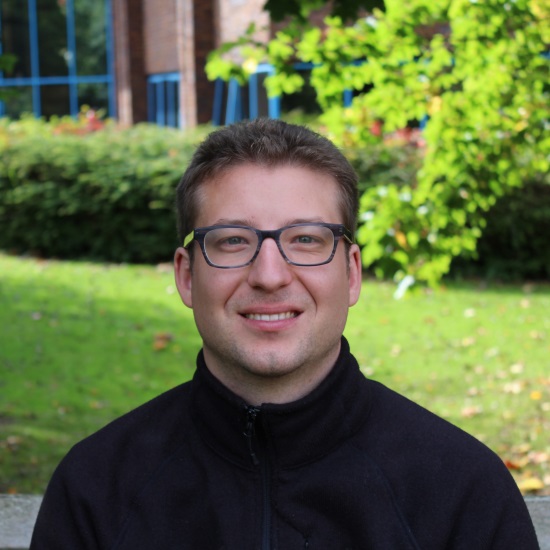
Dr Tobias Pforr, European University Institute, Italy

Dr Tobias Pforr, European University Institute, ItalyDr Tobias Pforr is a research fellow at the Robert Schuman Centre for Advanced Studies at the European University Institute. Prior to joining the Schuman Centre, he worked as a Research and Teaching Fellow at the University of Reading and the University of Warwick. His research interests include monetary theory, financial instruments, climate change adaptation, and decision-making. He has previous professional experience in banking and financial markets and has worked with international organizations such as the UN World Food Program, the Red Cross Red Crescent Societies, and the Overseas Development Institute. He holds a PhD from the University of Warwick and LUISS Guido Carli, a MSc from the University of Oxford, and a BA (Hons) from Macalester College. 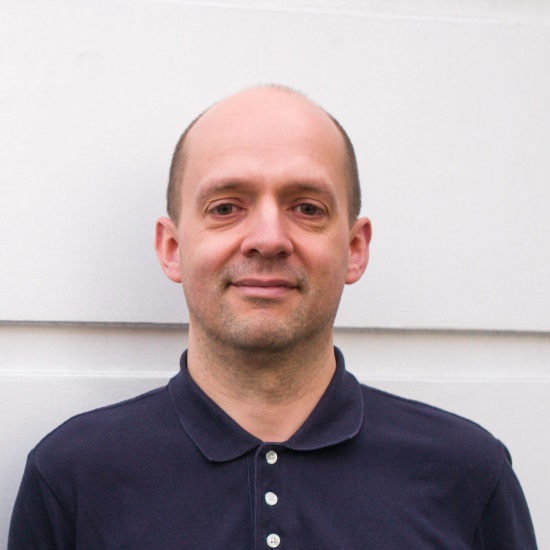
Dr Kris De Meyer, Climate Action Unit, University College London, UK

Dr Kris De Meyer, Climate Action Unit, University College London, UKKris De Meyer is a neuroscientist, science communicator, and director of the UCL Climate Action Unit. He brings insights from neuroscience and psychology to how we tell stories about climate change, communicate about climate risk, and create opportunities for climate action. For the CRUISSE network, he co-developed Shutdown!, an interactive scenario to help the UK Cabinet Office understand how the public would respond to a national blackout. This has led to several similar projects since. For example, 'Policy Pathways' – developed in collaboration with Chatham House – is an interactive scenario simulation to help policymakers explore the opportunities they have for increased ambition on climate change. With digital studio Fast Familiar, he ran Do What You Must in the COP26 Green Zone, an immersive scenario linking climate risk information to business decision making.
|
|---|---|
| 13:30 - 14:00 | Tea |
| 14:00 - 15:00 |
Panel discussion continued

Dr Ben Bowles, SOAS University of London, UK

Dr Ben Bowles, SOAS University of London, UKBen is a Lecturer in Social Anthropology at SOAS in the Department of Anthropology and Sociology. He has conducted research on water governance and water conflicts, boat-dwelling communities in the UK, the assurance of infrastructure projects for resilience, infrastructure financing communities, policing during the Covid-19 pandemic, and police professionalisation. He is an anthropologist of Britain, with an overriding research interest in processes of governance and statecraft. He is also a Research Fellow at the Open University. 
Dr Erica Thompson, London School of Economics and Political Science, UK

Dr Erica Thompson, London School of Economics and Political Science, UKDr Erica Thompson is a Senior Policy Fellow in Ethics of Modelling and Simulation at the LSE’s Data Science Institute, funded by a UKRI Future Leaders Fellowship. She is also a Fellow of the London Mathematical Laboratory, where she leads the research programme on Inference from Models, and an Honorary Senior Research Fellow at UCL’s Department of Science, Technology, Engineering and Public Policy. Erica works on the appropriate use of mathematical modelling to support real-world decisions, from mathematical and statistical questions about methodologies of inference from models, to psycho-social questions about the formation of confidence and the role of expert judgement. She applies these insights in fields including climate change science, anticipatory humanitarian action, artificial intelligence, insurance and risk regulation. 
Dr Tobias Pforr, European University Institute, Italy

Dr Tobias Pforr, European University Institute, ItalyDr Tobias Pforr is a research fellow at the Robert Schuman Centre for Advanced Studies at the European University Institute. Prior to joining the Schuman Centre, he worked as a Research and Teaching Fellow at the University of Reading and the University of Warwick. His research interests include monetary theory, financial instruments, climate change adaptation, and decision-making. He has previous professional experience in banking and financial markets and has worked with international organizations such as the UN World Food Program, the Red Cross Red Crescent Societies, and the Overseas Development Institute. He holds a PhD from the University of Warwick and LUISS Guido Carli, a MSc from the University of Oxford, and a BA (Hons) from Macalester College. 
Dr Kris De Meyer, Climate Action Unit, University College London, UK

Dr Kris De Meyer, Climate Action Unit, University College London, UKKris De Meyer is a neuroscientist, science communicator, and director of the UCL Climate Action Unit. He brings insights from neuroscience and psychology to how we tell stories about climate change, communicate about climate risk, and create opportunities for climate action. For the CRUISSE network, he co-developed Shutdown!, an interactive scenario to help the UK Cabinet Office understand how the public would respond to a national blackout. This has led to several similar projects since. For example, 'Policy Pathways' – developed in collaboration with Chatham House – is an interactive scenario simulation to help policymakers explore the opportunities they have for increased ambition on climate change. With digital studio Fast Familiar, he ran Do What You Must in the COP26 Green Zone, an immersive scenario linking climate risk information to business decision making.
|
| 15:00 - 16:00 |
Concluding dialogue: requirements for a cross disciplinary research agenda in the light of recent crises
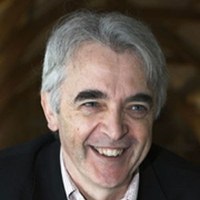
David Good, University of Cambridge, UK

David Good, University of Cambridge, UKDavid has worked at Cambridge since 1981 and was an undergraduate and postgraduate at Sussex and Cambridge. At Cambridge, he has worked in a number of different departments, and in roles in both research and education, often with public and private sector partners. For eight years, he was Education Director of the Cambridge MIT Institute. Apart the CRUISSE network, he is Director of Research for Cambridge Global Challenges, the University’s Strategic Initiative addressing the Sustainable Development Goals in developing countries, and leads in the Psychology Department the team developing interventions designed to inhibit the pathway from extreme values to violence. Much of his career has been devoted to supporting collaboration between the Arts Humanities and Social Sciences on the one hand and Science and Technology subjects on the other. He is an Honorary Fellow of the Royal College of Art, and a Fellow of King’s College, Cambridge. 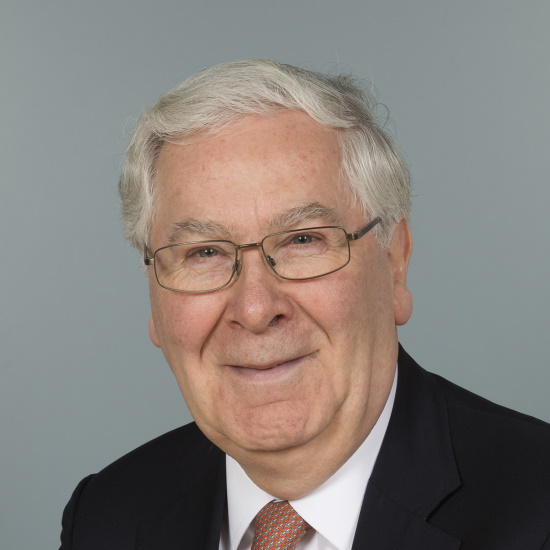
Lord Mervyn King of Lothbury KG GBE FBA

Lord Mervyn King of Lothbury KG GBE FBAMervyn King served as Governor of the Bank of England from 2003 to June 2013. He was previously Deputy Governor from 1998 to 2003, Chief Economist and Executive Director from 1991, and non-executive director of the Bank from 1990 to 1991. He was knighted (GBE) in 2011, made a life peer in 2013, and appointed by The Queen to be a Knight of the Garter in 2014. Lord King is the Alan Greenspan Professor of Economics and Professor of Law at New York University and Emeritus Professor of Economics at the London School of Economics. In 2016 he published The End of Alchemy. With a new preface, it appeared in paperback in 2017, and has been translated into many languages. His new book (with John Kay) Radical Uncertainty was published in March 2020. Born in 1948, Mervyn King studied at King’s College, Cambridge, and Harvard (as a Kennedy Scholar) and taught at Cambridge and Birmingham Universities before spells as Visiting Professor at both Harvard University and MIT. From October 1984 he was Professor of Economics at the London School of Economics where he founded the Financial Markets Group. Mervyn King is a Fellow of the British Academy, an Honorary Fellow of King’s and St John’s Colleges, Cambridge and holds many honorary degrees. He is a Foreign Honorary Member of the American Academy of Arts and Sciences. He is Chair of the Philharmonia Orchestra and a member of the House of Lords Economic Affairs Committee. |
